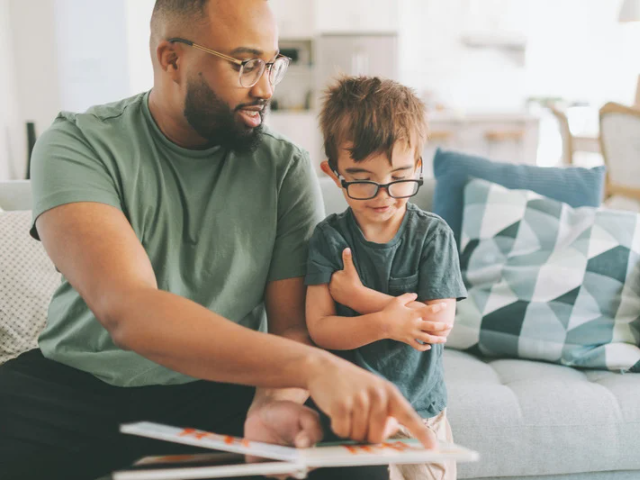Being able to have a conversation with someone is something we might take for granted. In most cases, we can ask someone how their day was, how they are feeling, or what’s wrong, and they can tell us. But that’s not so easy when you have a nonverbal child. How can you communicate effectively with them? Not to worry – there are several ways. It’s a matter of finding what method works best for your child and you. (We note respectfully that some individuals prefer to be referred to as nonspeaking vs. nonverbal)
The first step – an assistive communication evaluation for your child
A speech therapist can do this. You can have the school perform this evaluation, but they are generally mindful of cost. That’s not bad, but the low-tech option might not be the best for your child. For example, the assistive communication evaluation that the school district did for my youngest son so many years ago said he should use PECS (Picture Exchange Communication System) cards. They look like this. We gave it a try, but it was not the right way to go for him. Someday, if the stove and refrigerator in the kitchen ever get replaced, there will be dozens of PECS cards under there 😂!
The poor kid got so frustrated looking through tons of PECS cards in this huge binder we had to lug around he just started tossing them wherever he could. Using pictures to convey his message wasn’t the problem…he was fine with that. But he wanted a VOICE. Once we got software that could talk for him, he was happier. This didn’t surprise me. His favorite toys were often ones where you pushed something, and something happened as a result – music played, a voice talked, or lights went on. He eventually got what he needed, but we had to pay. It was a choice…but it was worth it to me to help him tell me what he wanted to say.
Let Them Find Their Voice
Next, I would encourage fellow parents to observe how their nonverbal children try to tell them what they need naturally. For example, my son tells me he’s hungry by taking me to the kitchen. He will put my hand on the door handle if he wants something from the refrigerator. I’ll open it and he can choose what he wants. This is a perfectly fine way for him to communicate with me if his electronic talker is charging. He will let me know he has a headache by taking my hands and putting them on his head. He might take my hand and put it on his knee. Then I know that his knee hurts (he’s in remission from Juvenile Idiopathic Arthritis, but when the weather turns, he still feels it). Technology is great, but sometimes it isn’t available. Having another plan for communication gives you options.
Voices Take Time to Develop
Lastly, try to have patience with your child and yourself. Rome wasn’t built in a day. Building a new communication system is going to take some time too. Some days will be good, and some will be frustrating. But stay with it because it is worth it in the long run.
Get a speech therapist on board to show you and your child the options available to you. An occupational therapist can help with this too. I had both work together to help us build a system that works for my son. Allow your child to communicate with you in a way that is natural for them. Maybe they’ll use some sign language with you. Maybe you will play a lot of charades throughout the day. See if you can find any clues on how they might like to communicate with you through the way they play. What kind of toys do they like? Why do you think they like them?
Some days will be good, and some will be frustrating.
But stay with it, because it is worth it in the long run.
I have found in my experience that parenting a nonverbal autistic child requires some detective work on my part. It’s not always easy, and you may not always get it right. However, communication is a basic need. With a little time, effort and help, you will find a system that works for your child. I have no doubt they will be forever grateful for it.
Related articles
Nonspeaking creativity with music and lyrics
Getting my child early intervention – A story of persistence, passion, and paying it forward




